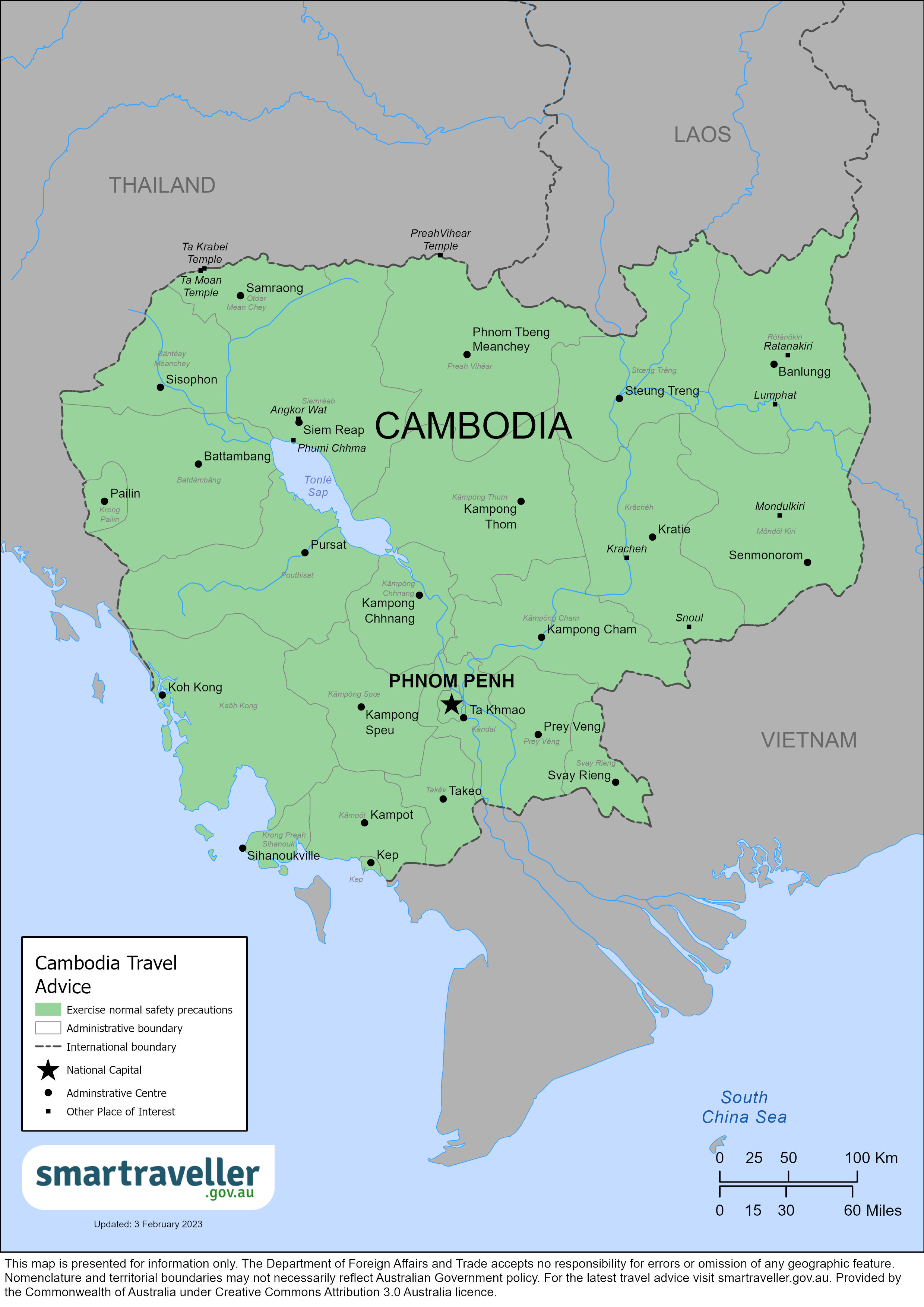Petty crime
‘Snatch-and-grab’ crimes against travellers are common. Thieves often travel on motorcycles and steal from people who are:
- walking along footpaths
- using motorcycle taxis
- travelling on tuk-tuks or rickshaws
Foreigners have been injured in these thefts. Be prepared to surrender your valuables rather than risk injury in a struggle.
Some thieves use knives to cut bags as they snatch them.
Significant celebrations often attract large crowds and can lead to petty crime and more serious threats.
Australians have had valuables stolen from locked hotel and guesthouse rooms, often in cheaper accommodation.
Theft from luggage on buses is common.
To help protect yourself from theft:
- avoid carrying bags or carry only what you need and leave other valuables in a secure location
- walk on footpaths (where available), away from the curb, with your bag on the opposite side to the traffic
- if travelling by tuk-tuk, use those with barriers (curtains or netting) covering the passenger sides
- always keep an eye on your belongings, particularly easy-to-grab items
- avoid using ATMs on the street — use ATMs inside hotels, banks and shopping centres if possible
Sexual assault and other violent crime
Foreigners have been the target of sexual assault, particularly in tourist areas.
Criminals often target victims:
- at night
- when intoxicated
- when travelling alone
Reports of groping and other sexual assaults are rising.
Drink spiking occurs. Foreigners have been sexually assaulted after having spiked drinks at nightclubs.
To protect yourself from drink spiking:
- only drink alcohol at reputable places
- pay attention when your alcoholic drinks are being mixed
- stay with people you trust in bars and nightclubs
Get urgent medical attention if you think your drink has been spiked.
Parties, including organised dance parties on islands off the coast of Sihanoukville, can be risky. They may place you at greater risk of sexual assault.
Coastal islands are often isolated. Access to medical or emergency assistance may be limited or not exist.
To help keep safe at parties:
- pre-arrange transport with your hotel when heading out at night
- stick with people you trust, and never leave your drinks unattended at parties, bars, and nightclubs.
See a doctor quickly if you’re involved in a violent crime, especially rape. There is a risk of contracting HIV/AIDS, hepatitis, and other sexually transmitted diseases in Cambodia.
More information:
Violence
Many people in Cambodia own guns, and gun crime and shootouts are common. Explosions have also occurred. These incidents usually arise from commercial, personal or other disputes. They can and have occurred at a wide range of locations, including at popular tourist destinations.
Traffic disputes have also resulted in violence involving weapons. Bystanders can get caught up in these disputes.
Armed robberies and home invasions targeting businesses or business owners happen across Cambodia.
Criminals have seriously injured or killed foreigners.
Assaults
Motorcycle and taxi drivers sometimes assault and rob foreigners late at night. Areas popular with tourists and expats are particular targets.
To help keep yourself safe from assault:
- consider using a ride-hailing App such as Grab or Passap
- be alert to danger at all times, especially after dark
- avoid travelling alone at night
- limit night-time travel to well-lit public areas, especially around Phnom Penh, Sihanoukville and Siem Reap
- travel in groups wherever possible
- don’t travel by motorcycle taxi at night.
At night, car travel is often safer than travel by motorbike or tuktuk.
Ridesharing services are common in Phnom Penh, Siem Reap, Sihanoukville, and Kampot and are often safer than a flagged down taxi, motorbike or tuktuk. Prices are often cheaper than those you’ll negotiate on the spot.
Scams
Criminal rings operate in Cambodia, particularly in Phnom Penh, and often use an apparently friendly person to approach travellers. They use ploys and stories to invite travellers to private homes.
Travellers are talked into playing card games, where they lose large amounts of money. Some are forced to withdraw money from an ATM or shop, often at gunpoint.
Online relationships and friendship scams also happen. Australians involved in these scams have been asked to take items with hidden drugs out of Cambodia or may be asked to send large sums of money to assist with fake problems.
Be aware of business and employment offers that appear ‘too good to be true’. Foreign nationals have been trafficked into Cambodia and forced to work in fraudulent activity, with poor pay and living conditions, restrictions on movement, and severe mistreatment. There are reports of ‘scam centres’ operated by organised crime organisations, where foreign victims are tricked into coming to Cambodia and other destinations in Southeast Asia and forced to work in online scamming. You can also learn more about business and employment scams on ScamWatch.
Credit card and ATM fraud occur. This includes using skimming machines to store card data.
To help protect yourself against scams:
- be wary of invitations from strangers, including to visit private homes
- never carry parcels or luggage for others
- check for skimming machines before using ATMs and check your transaction statements
Cyber security
You may be at risk of cyber-based threats during overseas travel to any country. Digital identity theft is a growing concern. Your devices and personal data can be compromised, especially if you’re connecting to Wi-Fi, using or connecting to shared or public computers, or to Bluetooth.
Social media can also be risky in destinations where there are social or political tensions or laws that may seem unreasonable by Australian standards. Travellers have been arrested for things they have said on social media. Don’t comment on local or political events on your social media.
More information:
Kidnapping
Kidnapping can happen anywhere, anytime, including in destinations that are typically at lower risk.
The Australian Government’s longstanding policy is that it doesn’t make payments or concessions to kidnappers.
More information:

